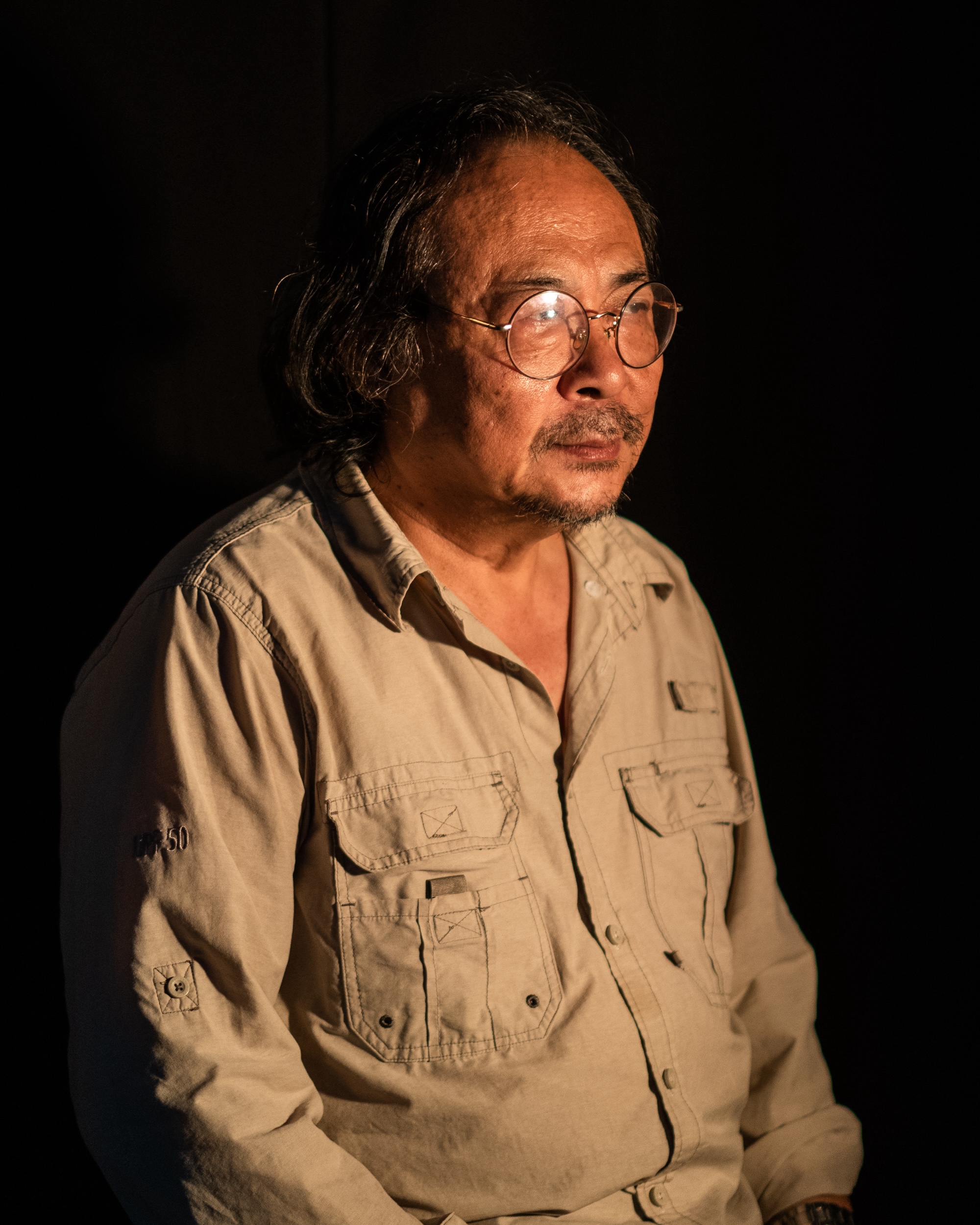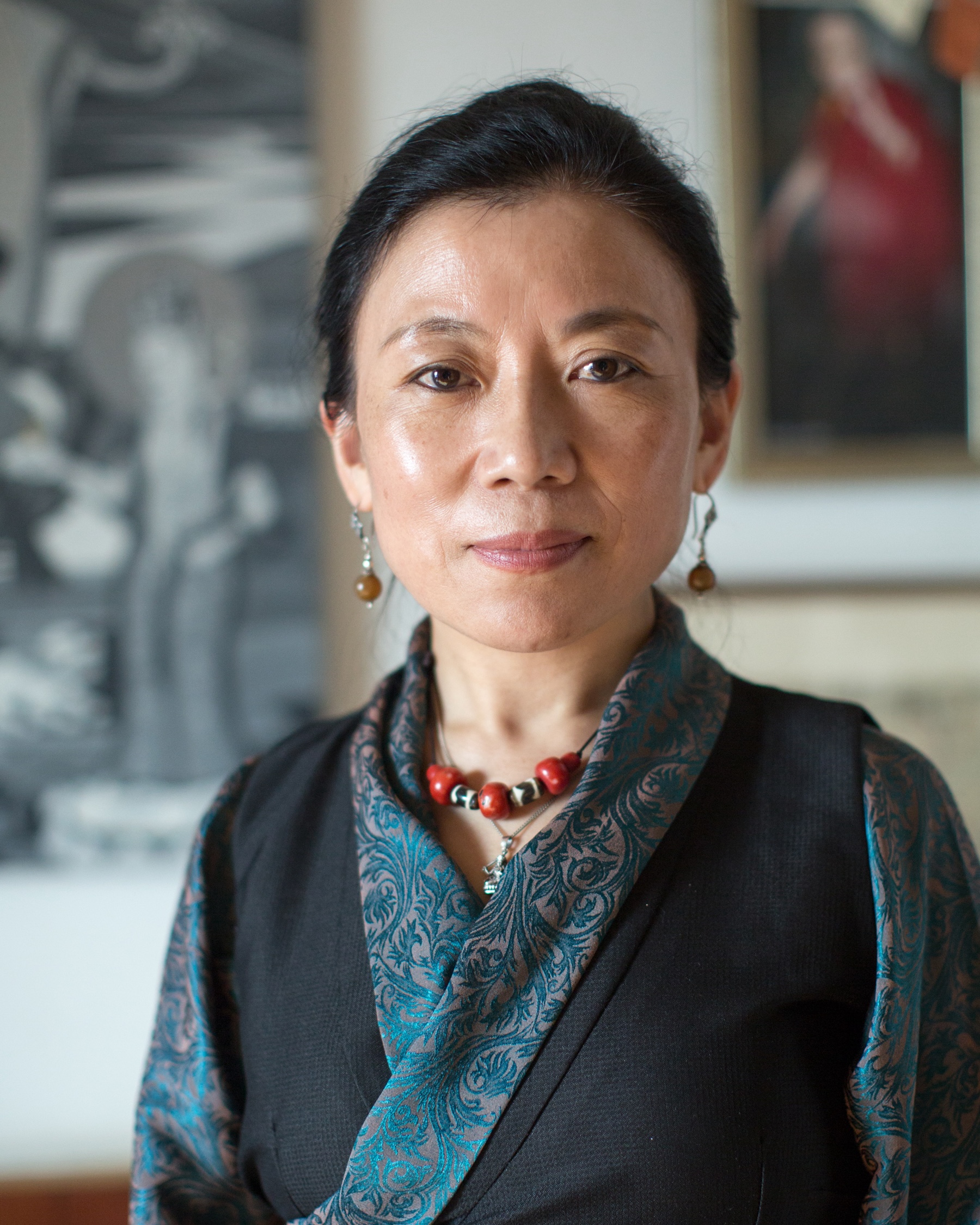Explore the creators
Showing 232 creators in the collection
232 creators
Robin Munro
Robin Munro (1 June 1952 – 19 May 2021) was a British legal scholar, author, human rights advocate, and witness of the 1989 democracy movement in China. Munro enrolled in Chinese Studies at the University of Edinburgh and left for China in 1977, as among the first foreign students allowed to study in the country after the reopening of universities following the Cultural Revolution. Upon returning to London in 1979, he joined Amnesty International as their China researcher. In 1987, Munro moved to New York to join Human Rights Watch, and from 1989 to 1998, he served as the principal China researcher and Director of HRW’s Hong Kong office, during which he witnessed first-hand the Tiananmen Square protests.
Munro returned to London in 1999 to pursue a doctoral degree at SOAS University of London, where he continued to research psychiatric abuse in China, and earned his PhD in 2005. In 2003, Munro returned to Hong Kong and joined as the Research Director of the China Labour Bulletin, founded by Han Dongfang, one of the Tiananmen leaders Munro helped escape. Munro retired in 2011, moving to Taiwan after being diagnosed with cancer and died of complications from illness on 19 May 2021.
Munro wrote extensively about the human rights situation in China and co-authored Black Hands of Beijing: Lives of Defiance in China’s Democracy Movement, which traced the lives of three leading Tiananmen activists to explain the genesis of pro-democracy movements.
Shan shaojie
Shan Shaojie (1953-), scholar. Born in Hefei, Anhui Province, Shan graduated from Anhui Normal University in 1978, received his PhD in Philosophy from Renmin University in 1988, and then stayed at the university to teach, earning the title of professor. He is now retired. Shan's main areas of research include the history of Marxist philosophy, Western philosophy, and Chinese history. In 2001, Shan published a book entitled *Mao in Power (1949-1976)*, which analyzes Mao's ruling and evaluates his merits and faults from a philosophical point of view.
Shen Yuan
Shen Yuan (the pen name of Chen Yulin), was born in Shanghai in 1936. He was admitted to 他the Beijing International Studies College, and joined the CCP in 1956. He was labeled a Rightist in 1958, expelled from the Party, and exiled to the frontier for reeducation through labor. After his rehabilitation in 1978, he was reinstated as a Party member and in the subsequent years worked for the Party. Dissatisfied with the CCP's suppression of the June Fouth student movement in 1989, he left mainland China and moved to Hong Kong. In 2007, he co-founded the Hong Kong Five-Seven Society and had since devoted himself to the collection of historical data for many years, and is mainly engaged in the study of the Anti-Rightist campaign. He passed away on December 28, 2019 in Shanghai at the age of 84.
Sima Lu
Sima Lu (1919-2021) was an expert in CCP history. He joined the CCP at the age of 18, and worked in Yan'an and Chongqing, where he came into contact with a number of high-ranking figures in the Communist Party. In Yan’an, he was the library director of the Anti-Japanese Military and Political University and the director of Xinhua Daily’s Yan’an office. He was assigned by Chen Yun to engage in underground activities in Kuomintang-occupied areas, and was a CCP representative of the Korean Volunteer Corps. After witnessing the cruelty of the Party's internal struggle and the repeated blows he suffered within the Party, he left the party in 1943 and participated in pro-democracy activities, joining the China Democratic League, founding the magazine Free East, and organizing the Chinese People's Party; he left for Hong Kong in 1949 due to the persecution of the CCP, and founded the Chinese Free Writers Association, the Zilian News Agency, the <i>Outlook</i> magazine, and the Center for China Studies. He moved to the U.S. in 1983, where he founded the magazine <i>Exploration</i> and the Chinese Scholars Association.
He devoted himself to collecting and researching the history of the CCP, and wrote more than twenty books, including <i>Eighteen Years of Struggle, History of the CCP and Selected Literature, Qu Qiubai's Biography, Theory of China's Peaceful Evolution, Politics in Contemporary China, Dream of the Red Chamber and Political Characters</i>, and <i>Witnesses to the History of the CCP</i>.
Song Bailin
Song Bolin was born into a party cadre family–his father was a high-ranking official in the People's Liberation Army. Song attended Tsinghua University High School during the Cultural Revolution and was a core member of the school’s Red Guards group.
In August 1966, when Mao Zedong met with the Red Guards on Tiananmen Square, Song was one of the first students to meet Mao. Song kept a diary covering the period before and at the beginning of the Cultural Revolution. His diary, especially the part about the Red Guards at Tsinghua University High School was considered to be of great historical value, and Yu Ruxin, a Cultural Revolution researcher, compiled Song’s diary into a book entitled <i>Rise and Fall of the Red Guards: A Handbook of the Old Red Guards at Tsinghua High School</i>.
Sun Liping
Sun Liping (May 7, 1955-) is a professor and doctoral supervisor in the Department of Sociology at Tsinghua University. A native of Suizhong, Liaoning Province, Sun was admitted to the Department of Chinese Language and Literature of Peking University in 1978, where he majored in journalism, and then to Nankai University, where he studied sociology. From 1983 to 1999, Sun taught at Peking University, where he served as teaching assistant, lecturer, and associate professor. He transferred to Tsinghua University as a professor and doctoral supervisor in 2000. Sun is also a guest researcher of the China Society for Economic Reform.
Sun is concerned with China's political and economic reforms, and has published several books analyzing China's economy and society from a sociological point of view including *Exploration and Reflections on Development*, *Fracture: Chinese Society since the 1990s*, and *Social Reconstruction—Reconstruction of Order in a Transforming Society*.
Tan Chanxue
Tan Chanxue (1934—2018),a native of Kaiping, Guangdong Province, was labeled a Rightist in 1957 when she was a student at the Department of Chinese Literature of Lanzhou University. In August 1958, she and 41 other Rightist students and teachers of Lanzhou University were exiled to Tianshui County, Gansu Province, for laojiao, or re-education through labor. In 1960, during the peak of the Great Famine, students labeled Rightists at Lanzhou University, such as Zhang Chunyuan (see separate entry) and Gu Yan (see separate entry), decided to publish an underground publication, Spark, to expose the truth and comment on current affairs. Other students, including Tan Chanxue and the poet Lin Zhao (see separate entry), a student at Peking University, were also involved. The core members of Spark were later labeled as a counter-revolutionary group. Tan Chanxue was sentenced to 14 years in prison for her involvement in Spark, released in 1973 and sent to work in a factory. After her rehabilitation in 1980, Tan taught at the Jiuquan Normal University, then at the Dunhuang Academy, from which she retired in 1998. She moved to Shanghai and passed away there on June 1, 2018.
Starting in 2004, Tan Chanxue dedicated herself to documenting the history of Spark and the era that gave birth to it. Throughout the years, she traveled to Lanzhou and Tianshui to collect information and documents, and completed and published the book Spark: The Rightist Anti-Revolutionary Group Case at Lanzhou University. She and her friends also typed and edited Lin Zhao's writings in prison, some written with her own blood, into the Lin Zhao Anthology, which has become an important historical record.
Tan Hecheng
Tan Hecheng (b.1948—), a native of Changsha, Hunan Province, writer and editor.
Tan's father was a Kuomintang general; his mother, whose parents participated in the 1911 revolution, was a delegate to the Republic of China’s national parliament and was persecuted during the Cultural Revolution.
Tan joined a group of Red Guards traveling around China during the Cultural Revolution and later studied carpentry. In 1978, when university exams resumed, Tan was admitted to the Changsha University of Science and Technology, where he developed an interest in writing.
After graduation, he was assigned to work in a factory. After winning a prize for his reportage literature (baogao wenxue) work, he was recruited by one of the editors of Furong, or Hibiscus, a Changsha literary magazine.
In 1984, CCP’s reformist leader Hu Yaobang sent more than 1,300 officials to Dao County to investigate the mass killings that occurred in 1967. Tan was sent along with the team for part of its stay. As a writer for a state publication, Tan gained a number of documents unearthed during the investigation and conducted interviews, based on which he wrote an article of 100,000 characters.
His editors, however, said it could not be published because the political climate was changing with the start of the "bourgeois liberalization" campaign, which eventually led to Hu's fall. Tan decided to continue his investigation and traveled to Dao County many times to do follow-up interviews.
In 2010, he published *Blood Myths: the 1967 Mass Killings in Dao County, Hunan Province during the Cultural Revolution* through Hong Kong-based Tianxingjian Publishing House. This nine-volume work consists of 83 chapters and more than 500,000 characters. The book was revised in 2016.
According to Tan's investigation, in the 66 days from August 13 to October 17, 1967, more than 9,000 villagers, including women and children, were killed or forced to commit suicide because they were wrongly accused of engaging in counter-revolutionary activities.
Further Resources:
<a href=“https://www.nybooks.com/online/2017/01/13/china-hidden-massacres-tan-hecheng/”>China’s Hidden Massacres: An Interview With Tan Hecheng</a>
Tiger Temple
Zhang Shihe, (September 27, 1953—) known by his artist name Laohu Miao (Tiger Temple), is a native of Xi'an, Shaanxi Province, a citizen journalist, a documentary filmmaker and human rights activist.
Born into a family of CCP cadres, Zhang's father had been a Public Security Bureau official in China’s Northwest, and served as a vice minister of the Ministry of Forestry after the Cultural Revolution.
During the Cultural Revolution, Zhang's parents were persecuted and both imprisoned. He spent several years traveling the country by rail. In 1970, when Zhang was still a teenager, he was sent off to the mountains to help build a railway line.
I was sent to work on the Xi’an to Qinghai railway. More than 190 people died building that. We had to carry 40-pound sacks of cement on our backs. We were teenagers.
Of course, it ruined so many people’s health. Most were broken when they came home. They’d carry two sacks, one on the end of each pole, and carry it up the mountain. Professional track layers did 28 meters a month. We did 37.
After the Cultural Revolution, Zhang worked at a Shaanxi steel mill, and from 1983 to 1990 he opened China's first private bookstore, Tianlai, which was shut down after the 1989 democracy movement because it was unable to sell foreign books and was harassed by the local writers' association.
In the late 1990s, when the Internet took off in China, Zhang began to use the name Tiger Temple, recording what he saw and heard with a video camera, and publishing it online.
In 2004, he filmed a killing in Beijing and published it online, and was then called "the first practitioner of citizen journalism" by several media outlets. Zhang has documented the plight of the grassroots, including miners, displaced persons, and petitioners. He has published nearly 1,000 videos, as well as initiated a number of aid initiatives.
In 2013, the New York Times did a <a href=“https://www.nytimes.com/video/opinion/100000002225772/a-long-ride-toward-a-new-china.html?searchResultPosition=6”>video profile of Zhang as he biked through China doing reports on the countryside</a>. Today, he is more active on the Chinese short-video site Bilibili, where <a href=“https://space.bilibili.com/569775098”>he posts video interviews on a variety of topics</a>, including with elderly survivors of the Cultural Revolution or with the Chinese lawyer and public intellectual Chen Hongguo.
For six years, from 2015 to 2021, Zhang was part of a group including Chen and the independent journalist Jiang Xue who ran a public-meeting space in Xi’an called “I Know I Know Nothing” (<i>zhiwuzhi</i>).
In addition, Zhang is concerned with human rights activism. He has filmed videos and documentaries for Gong Meng, a Beijing-based NGO that provides legal assistance to the disempowered and promotes the New Citizens’ Movement, and one of its founders Xu Zhiyong.
He has also participated in filming a video series entitled “Diligently Strive for Civil Society,” (held by CUA), which interviewed more than 50 activists, artists, scholars etc. about their views on civil society.
In 2011, in the wake of the Arab Spring, Zhang was sent back to Xi’an, where he lives today.
In an interview, Zhang was asked why he continues to make films, even though they cannot be shown in China. He answered that he hopes that he is creating a record for future generations, an ark that can survive the current flood.
“You keep asking me why, but I’m not so good with those theoretical questions,” he said. “I just know I’m going to keep going; it’s my responsibility to history.”
Other resources:
- Ian Johnson, Sparks: China’s Underground Historians and Their Battle for the Future
- 《中国猛博: 新媒体时代的民间话语力量》,编著翟明磊,香港天地图书。
- <a href=“https://www.chinafile.com/library/nyrb-china-archive/my-responsibility-history-interview-zhang-shihe ”>My Responsibility to History</a>.
Tsering Dorje
Tsering Dorje (1937 - December 25, 1991)’s father was a Han Chinese who was a former Kuomintang officer, and later joined CCP’s Red Army; Dorje’s mother was a local Kham Tibetan in Derge, Sichuan Province. When a division of People's Liberation Army passed through Derge in 1950, the then 13-year-old Dorje was sent by his father to enlist in the army, and went to Tibet to serve as an interpreter, and joined the Chinese Communist Party in 1957. While working in the Tibetan Military District, Dorje took part in the quelling of the Tibetan uprising in 1959, the Sino-Indian War in 1962, as well as the establishment of the Tibet People’s Broadcasting Station where he operated the program " Broadcast for Tibetan Compatriots Outside of China."
During the Cultural Revolution, Dorje was kicked out of Lhasa because of factional fighting in the army, and was transferred to Garzê Tibetan Autonomous Prefecture in Sichuan Province, during which he headed a local People's Armed Forces unit, part of the militia system in Mao’s China, as well as serving as chief of staff of a local military sub-district. In June 1990, he was appointed as deputy commander of the Lhasa Military Sub-District and returned to Lhasa. On December 25, 1991 Dorje died of illness.
Dorje was an amateur photographer who took a large number of photographs during the Cultural Revolution in Tibet. In 2006, his daughter, Tsering Woeser, compiled nearly three hundred photographs, mainly taken between 1966 and 1970, into a book titled *Forbidden memory: Tibet during the Cultural Revolution*, which was published in Taiwan and later by Potomac Books in the United States.




